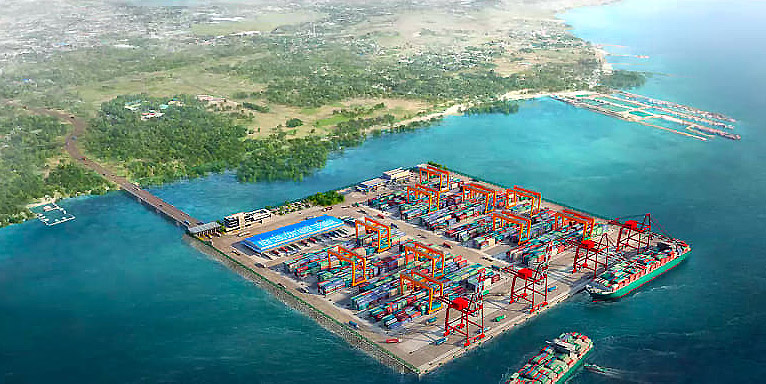-
The Maritime Industry Authority is supporting the government policy prohibiting Filipino seafarers from sailing in war zones and high-risk areas
-
The Department of Migrant Workers said it will no longer allow boarding of Filipino seafarers on ships attacked by Houthi rebels in the Red Sea and Gulf of Aden
-
MARINA administrator Sonia Malaluan highlighted the non-negotiable nature of safety and the critical need for seafarers to adhere to safety management systems
The Maritime Industry Authority (MARINA) is supporting the government policy prohibiting Filipino seafarers from sailing in war zones and high-risk areas.
MARINA administrator Sonia Malaluan emphasized the importance of seafarer safety and said, “no value or money can replace the life of a seafarer” during an event celebrating the Day of the Seafarers on June 25.
The Department of Migrant Workers on June 25 also said it will no longer allow boarding of Filipino seafarers on ships attacked by Houthi rebels in the Red Sea and Gulf of Aden.
“What we do know for now is that we will take action with respect to the principals or shipowners who have been involved in at least the three attacks – Galaxy Leader, True Confidence, and Tutor,” Migrant Workers Secretary Hans Leo Cacdac said during a press briefing.
Malaluan served as one of the panelists of “Iba Ang May Alam! Forum on Seafarers Welfare,” part of the day of the seafarers’ celebration and the 10th anniversary of The Mission to Seafarers-Philippines.
She highlighted the non-negotiable nature of safety and the critical need for seafarers to adhere to safety management systems, wear proper personal protective equipment or PPE, and ensure they are medically fit for duty to avoid discrimination.
Malaluan also discussed MARINA’s digitalization initiatives to streamline frontline services and improve safety and security protocols onboard ships.
The Day of the Filipino Seafarer 2024 celebration, aligned with the World Maritime theme “Navigating the Future: Safety First”, featured events underscoring the significant contributions of seafarers to international trade and the global economy.
In a written message, President Ferdinand Marcos Jr. commended MARINA’s efforts in maintaining international standards and advancing the maritime industry.
“Rest assured that this administration, through the Department of Transportation, continues to work conscientiously in ensuring the advancement of our maritime industry and securing the best interest of all Filipino seafarers as we sail onward to our dream of a Bagong Pilipinas,” said Marcos.
Transportation Secretary Jaime Bautista, in a video message, complimented Filipino seafarers for their contributions to global trade, noting the Philippines’ continued inclusion in the International Maritime Organization (IMO) whitelist, and said, “(Manifests) our strict compliance to high standards in maritime education, training, and certification. The recognition shows that our seafarers, who were trained and certified in the Philippines, meet the rigorous international standards by the IMO.”
In her opening remarks, Malaluan stressed the need to equip seafarers with the necessary knowledge, skills, and tools for safety, reinforcing the commitment to creating a safer maritime environment.
The event included a symposium on maritime safety, featuring presentations from the Ocean Technologies Group on seafarer learning and training, MARINA on clean and safe marine transportation, and the Philippine Coast Guard on Maritime Aids to Navigation.
The International Seafarers Welfare and Assistance Network discussed cases of abuse and harassment reported to their helplines. Representatives from maritime higher education institutions, maritime training institutions, and licensed manning agencies participated in the event at the Midas Hotel in Pasay City.









